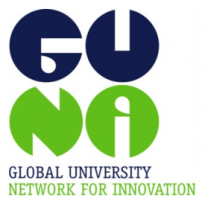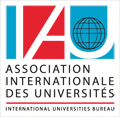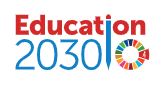Sustainable Development Goals: from science to action
News / Actualités

Sustainable Development Goals: from science to action
Universities and scientific research play a prominent role in the knowledge society and economy. As Daniel Innerarity says in his excellent book The Democracy of Knowledge, the problems faced by mankind today require major mobility of knowledge.
If we want to solve these problems, we need to be able to generate a large amount of knowledge. For Innerarity, our biggest challenge consists of building a smart society. The complexity of our societies, the density of their interactions, the interdependencies and the shared vulnerabilities are all making it increasingly more important for us to be intelligently organised.
In this context, universities and science can and must support the Sustainable Development Goals (ODS) because their strategic role in society makes them key actors in the achievement of the same. Universities and research centres are recognised as neutral and trustworthy actors, and this presents them with the opportunity to establish dialogue and open up spaces for collaboration between multiple actors. In fact, universities have been, since their genesis, catalysts of change on a local, regional and international scale.
In accordance with their primordial function as educators of citizens and professionals, universities can help to transmit the SDG and the very paradigm of sustainable development, and in every field of university studies. Only in Spain, the 1.4 million university students can constitute a transformational generation if we are all able to get the challenges of the SDG across to them and train them in the key knowledge and skills for their effective development. In the field of research, there can be no doubt that universities and research centres can be catalysts for the analysis of the problems associated to the SDG, for the development of public policies and all kinds of instruments (technology, applied science and social innovation) and for impact analysis and the monitoring of policies on a local and global scale. Universities can help political leaders to make decisions on the basis of science-based evidence. Indeed, the 2030 Agenda is an excellent chance to boost the interrelationship between science and politics, developing what we call Responsible Research and Innovation (RRI): to guide scientific policies in accordance with social needs and demands, to foster open access so we can share the stock of knowledge, and to encourage ethical and responsible practices among scientists and academics. In short, science works with and for society. And that goal is in total harmony with the global priorities set by the SDG.
Goal 17 speaks of the importance of establishing partnerships as instruments for collaboration between different social agents in order to meet the SDG. In this context, little over a month ago, Barcelona hosted the International Congress on “Sustainable Development Goals: Actors and Implementation”. This brought together 220 guests from 21 different countries to discuss the practical application of the SDG and the strategic role that universities and the knowledge world in general can play in their achievement. Indeed, all of the experts in attendance agreed that the adequate implementation of the SDG requires the active and relevant participation of knowledge, scientific research and innovation in the broadest and most multidisciplinary sense. Likewise, the experts stressed the need to forge strategic alliances between institutions, universities, companies and social organisations. In an increasingly more reticular world with more distributed power systems, it is essential for us to create stable collaborative networks that will be efficient leverages for change and transformation.
The event was organised by the Global University Network for Innovation (GUNi), which was created in 1999 by UNESCO, the University of the United Nations (UNU) and the Catalan Association of Public Universities (ACUP), which provides its secretary and president. The network currently consists of more than 210 higher education centres, UNESCO chairs and research centres in more than 78 different countries and has pledged to be a true global catalyst for the involvement of universities and the knowledge world in the execution of the SDG.
To do so, one of the projects that the GUNi is working on is the constitution of a group of international experts on the basis of the collaborative work between the world’s main university networks that focus their work on sustainable development, social commitment and interrelations between society and universities. It thereby intends to create, to a certain extent, a network of networks whose priorities shall be joint efforts to make the SDG effective and hence be able to generate evidence and impact studies that can assess the degree of implementation of the SDG.
Likewise, the GUNi publishes regular world reports on issues of relevance to higher education and knowledge. The World Report published just half a year ago is titled “Towards a Socially Responsible University: Balancing the Global with the Local”. It analyses the difficult tension between the local and regional priorities of any university and its global priorities and objectives. We have already started work on the next World Report, which will deal with the future of humanities and the interrelations between science, technology and humanities in such a complex and changing society as the one today, where the rapid advance of science and technology is presenting human challenges that interrelate with ethics, justice, tolerance and the human condition and progress.
With an eye to 2019, the GUNi is proposing the organisation of a second edition of the International Congress on the Sustainable Development Goals, and for these to be continued on a biennial basis. Until then, there is a long road ahead in order to make the participation of universities and knowledge effective in the deployment of the SDG. We have started on this road with conviction and determination and are open to sincere collaboration with everyone that shares the SDG on both a local and global scale.

 INGO with UNESCO Associate Status / ECOSOC Consutative Status
INGO with UNESCO Associate Status / ECOSOC Consutative Status